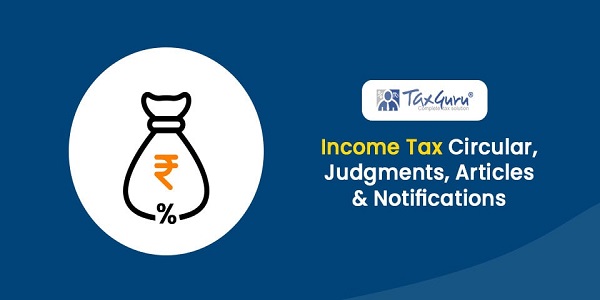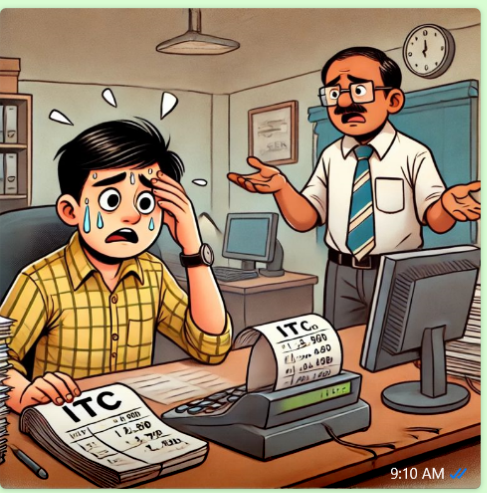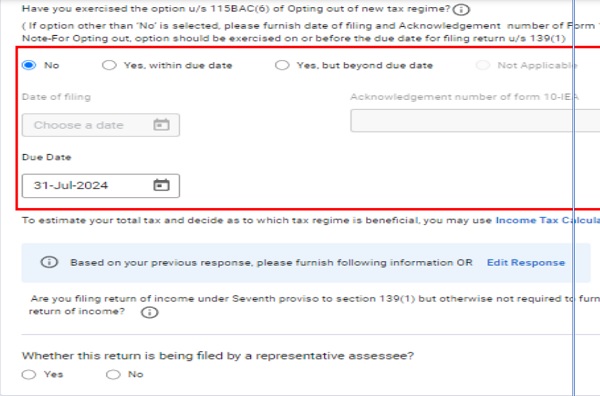Case Law Details
AGM Properties P. Ltd Vs ACIT (ITAT Delhi)
To recapitulate the facts, it is an admitted position that for AY 2013-14 the assessee had originally filed its return of income under section 139(1) of the Act on 15.11.2014 and assessment under section 143(1) of the Act was completed on 15.11.2013. The time limit for issuance of notice under section 143(2) of the Act was upto 30.09.2014 but not notice under section 143(2) of the Act was issued upto 30.09.2014. On expiry of the aforesaid period for issue of notice under section 143(2) of the Act, the assessment for AY 2013-14 is deemed to have been concluded. The search was conducted on 17.09.2015. On the date of search i.e. 17.09.2015 the assessment for the AY 2013-14 was not pending. Therefore, the acceptance of the return of income amounts to an assessment and such assessment did not abate in terms of the second proviso to section 153A(1) of the Act. During the course of search no incriminating material whatsoever was found and seized. The Ld. CIT(A) himself observes in para 6 of appellate order that it is a fact that the punchnama does not depict any seizures.
In the background of the above factual matrix, the decision of Hon’ble Delhi High Court in CIT vs. Kabul Chawala 380 ITR 573 (Delhi) squarely applies to the facts of the assessee’s case wherein their Lordships held that assessment under section 153A can be carried out only on the basis of seized material. Where no incriminating material was unearthed during the search, no additions could be made to the income already assessed.
In their later decision in the case of Pr. CIT and ors. vs. Meeta Gutgutia Prop. Ferns ‘N’ Patels and Ors. (2017) 395 ITR 526 (Delhi) the Hon’ble Delhi High Court reiterated with approval their observations in Kabul Chawala’s case (supra) that completed assessments could be interfered with by AO while making assessment under section 153A only on basis of some incriminating material unearthed during course of search. If in relation to any assessment year, no incriminating material was found, no addition or disallowance could be made in relation to that assessment year in exercise of powers under section 153A and earlier assessment should have to be reiterated. This decision has been affirmed by the Hon’ble Supreme Court by dismissing the Revenue’s SLP in PCIT vs. Meeta Gutgutia (2018) 96 taxmann. Com 468 (SC).
Accordingly, we hold that the assessment for AY 2013-14 was already completed prior to the date of search and having not abated, the scope of proceedings under section 153A of the Act had to be confined only to material found in the course of search. Since no material on the basis of which the impugned addition has been made was found in the course of search, the addition made by the Ld. AO in the order of the assessment could not have been subject matter of proceedings under section 153A of the Act. Consequently, impugned addition could not be made. The assessment order is held to be bad in law and is quashed.
FULL TEXT OF THE ORDER OF ITAT DELHI
The appeal by the assessee is directed against the order dated 09.11.2018 of the Ld. Commissioner of Income Tax (Appeals)- XXVI, New Delhi (“CIT(A)”) pertaining to the assessment year (“AY”) 2013-14.
2. It is a case of search. Search was conducted on 16.09.2018 in the AMP Group of cases. Warrant of authorisation was issued in the name of M/s. Automobiles Component (India) Ltd., Now known as M/s. AGM Properties Pvt. Ltd. Accordingly search was carried out at the premises of Shri Nem Chand Gupta who was a director in the company, M/s. Automobiles Component (India) Ltd.
2.1 Notice under section 153A of the income Tax, 1961 (the “Act”) was issued on 02.09.2016 and served requiring the assessee to file its return. Notice under section 143(2) of the Act dated 20.07.2017 was issued fixing the hearing on 28.07.2017. None attended. On 31.08.2017 the assessee asked for copy of panchnama stating that no search has ever been conducted in respect of company AGM Properties Pvt. Ltd. and therefore notices under section 153A and 143(2) are unwarranted. Vide letter dated 06.12.2017 the Assessing Officer (“AO”) gave copy of panchnama and intimated that warrant of authorisation was issued in the name of erstwhile company M/s. Automobile Component (India) Ltd. and that the proceedings under section 153A have validly been taken. So return for AY 2010-11 to 2015-16 be filed by 11.12.2017 as the case will be barred by limitation on 31.12.2017.
2.2 However, the assessee did not file return and the Ld. AO proceeded to complete the assessment ex-parte. He computed the total income by adding current liability of Rs. 59,98,500/- and 2% commission thereon amounting to Rs. 1,19,970/- on protective basis to the income of Rs. 4,330/- shown as per return. He thus completed the assessment on total income of Rs.61,22,800/- on 29.12.2017 under section 153A read with section 144 of the Act.
3. The assessee filed appeal before the Ld. CIT(A). Following contentions were raised:-
i) The warrant of search and actual search is not on the assessee company. In fact search took place in the case of Nem Chand Gupta, D-3/100, Sector 16, Rohini, New Delhi. During the course of search what to speak of incriminating material there was no seizure at all either of any cash, jewellery or any other valuable article or thing or any books of account and document and even then assessment under section 153A has been completed.
ii) Return of income by AGM Properties Pvt. Ltd. for the AY 201314 was filed on 15.11.2013 and assessment under section 143(1) was completed on 15.11.2013 which is prior to the date of search i.e. 16.09.2015. Hence, on the date of search there was no assessment pending and therefore, there was no abetment of the assessment.
iii) For valid assessment under section 153A there must be pendency of assessment; assessment should be made on the basis of incriminating material found during the course of search. If these two conditions are not satisfied, there cannot be any valid assessment under section 153A of the Act. In the case of the assessee there was no pending assessment nor any incriminating material was found. Hence the assessment completed under section 153A is invalid. In any case, there cannot be any addition in the income.
iv) Without prejudice to the above, it was also submitted that the assessment by itself is contradicting in as much as the AO himself admits that the assessee company was involved in providing accommodation entries. When it is so, the amount of Rs. 59,98,000/- provided by the assessee as an accommodation entry cannot be its income. Such amount could only be added in the hands of the person who had obtained the accommodation entry from the assessee.
v) Reliance was placed on the following judgements:-
(a) Meeta Gutgutia 395 ITR 526 (Del)
(b) SKS Ispat and Power Ltd. 398 ITR 584 (Bom)
(c) Deepak Kumar Agarwal and others 398 ITR 586 (Bom) (D) Best Infrastructure India Pvt. Ltd. 397 ITR 82 (Del)
(d) Dipak Jashvantalal Panchal 397 ITR 153 (Guj)
(e) Chintels India Ltd. 397 ITR 416 (Del)
(f) Kabul Chawla 380 ITR 573 (Del)
vi) There was no search in the case of the assessee and in the absence of search also there cannot be any 153A assessment. It was requested that not only the addition be deleted but the assessment itself be quashed.
3.1 In remand report obtained by the Ld. CIT(A) the Ld. AO stated that it was intimated to the assessee that warrant was issued in the name of M/s. Automobiles Components (India) Ltd., Now known as M/s AGM Properties Pvt. Ltd. and that search was conducted at the premises of Shri Nem Chand Gupta who was director in M/s. AGM Properties Pvt. Ltd.
3.2 In rejoinder, it was stated that no assessment was pending and hence there was no abetment. Even during the course of search there was no seizure of anything whatsoever. Hence, assessment made under section 153A is invalid. It was also stated that there was no search on the assessee company and a search on the director even though present or old could never amount to search on the assessee company. It was further stated that the solitary submission is that no pendency of assessment, no abetment and no seized material and hence there cannot be any section 153A assessment and if invalidly made, the same deserves quashing.
4. The Ld. CIT(A) extracted the observations of the Ld. AO made in the assessment order in his appellate order and gave the finding that he did not find an infirmity in the order of the Ld. AO. The appeal of the assessee was dismissed.
5. Aggrieved, the assessee is before the Tribunal. Following grounds have been taken:-
“1. On the facts and in the circumstance of the case and in law the CIT(A) was incorrect and unjustified in dismissing the appeal of the assessee.
2. On the facts and in the circumstance of the case and in law the CIT(A) was incorrect and unjustified in confirming the addition of Rs 59,98,500/-incorrectly made by the AO even when during the course of search proceedings absolutely nothing whatsoever of any kind or of any nature was found and seized during the search.
3. On the facts and in the circumstance of the case and in law the CIT(A) was incorrect and unjustified in holding that the judgment of the Hon’ble Delhi High Court as confirmed by the Hon’ble Supreme Court of India in the case of Meeta Gutgutia in as much as there cannot be any addition of any amount when absolutely nothing was found during search was not applicable.
4. On the facts and in the circumstance of the case and in law the CIT(A)was incorrect and unjustified in holding that the judgment of the Hon’ble Delhi High Court as confirmed by the Hon’ble Supreme Court of India in the case of Kabul Chawala in as much as there cannot be any addition of any amount when absolutely nothing was found during search was not applicable to the facts of the case.
5. On the facts and in the circumstance of the case and in law the CIT(A) was incorrect and unjustified in holding that there was a search on the assessee even when there is no Punchnama and no warrant in the case of the assessee.
6. On the facts and in the circumstance of the case and in law the CIT(A) was incorrect and unjustified in holding that the assessee has not made any ground regarding the addition made by the AO since even when a ground has been raised that the assessing officer was unjustified in assessing the assessee at an income of Rs 61,22,800/-.
7. On the facts and in the circumstance of the case and in law the CIT(A) was incorrect and unjustified in holding that the AO had acquired valid jurisdiction u/s 153A is the case of the assessee even when there was no search on the assessee.
8. On the facts and in the circumstance of the case and in law the CIT(A) was incorrect and unjustified in not agreeing that search on Nem Chand is not a search on the assessee.
9. On the facts and in the circumstance of the case and in law the Authorities below were incorrect and unjustified in holding that large number of incriminating documents were seized but as per Panchnama there is no seizure at all.
10. On the facts and in the circumstance of the case and in law the CIT(A) was incorrect and unjustified in sustaining the addition in the hands of the assessee even when as per the assessment order Deepak Aggarwal had floated various companies and was engaged in providing accommodation entries and when it was so there is no question of any addition in the hands of the assessing company.”

6. We have heard the Ld. Representative of the parties.
6.1 The Ld. AR reiterated the same arguments and contentions which were advanced before the Ld. CIT(A). He pleaded that the Ld. CIT(A) was not justified in confirming the addition incorrectly made by the Ld. AO even when during search nothing was found and seized. According to him, the assessee had filed its return for AY 2013-14 on 15.11.2013 and notice under section 143(2) would have been issued on or before 30.09.2014 but notice under section 143(2) was issued on 20.07.2017. This is ,therefore, a case of unabated assessment. No incriminating material was found and seized as a result of search. The Ld. AR referred to the decision of Hon’ble Delhi High Court in Meeta Gutgutia (supra) and Kabul Chawala (supra) and pointed out that SLP filed by the Revenue against the decision in Meeta Gutgutia (supra) has been dismissed by the Hon’ble Supreme Court.
6.2 The Ld. DR relied on para 3 of Ld. AO’s order and submitted that statement of Shri Nem Chand, Director was recorded which according to the Ld. DR is the incriminating material found during the search action and that assessment has been made on the basis of post such material and material found during search.
6.3 In rebuttal, the Ld. AR submitted that statement of Shri Nem Chand was recorded in post-such inquiry and not during the course of search. No incriminating material was found and seized in search. The Ld. AR relied on the decision of the Delhi High Court in Pr. CIT vs. Anand Kumar Jain (HUF & ors.) 432 ITR 384 (Del) wherein the Hon’ble Delhi High Court referred to the decisions in the case of CIT vs. Best Infrastructure (India) P. Ltd. (2017) 397 ITR 82 and CIT vs. Harjeet Aggarwal (2016) 290 CTR 263 and held that the statement recorded under section 132(4) of the Act cannot on a stand alone basis, without reference to any other material discovered during search and seizure operations, empower the AO to frame the block assessment.
7. We have given our careful thought to the rival submissions and perused the material available on record. To recapitulate the facts, it is an admitted position that for AY 2013-14 the assessee had originally filed its return of income under section 139(1) of the Act on 15.11.2014 and assessment under section 143(1) of the Act was completed on 15.11.2013. The time limit for issuance of notice under section 143(2) of the Act was upto 30.09.2014 but not notice under section 143(2) of the Act was issued upto 30.09.2014. On expiry of the aforesaid period for issue of notice under section 143(2) of the Act, the assessment for AY 2013-14 is deemed to have been concluded. The search was conducted on 17.09.2015. On the date of search i.e. 17.09.2015 the assessment for the AY 2013-14 was not pending. Therefore, the acceptance of the return of income amounts to an assessment and such assessment did not abate in terms of the second proviso to section 153A(1) of the Act. During the course of search no incriminating material whatsoever was found and seized. The Ld. CIT(A) himself observes in para 6 of appellate order that it is a fact that the punchnama does not depict any seizures.
7.1 In the background of the above factual matrix, the decision of Hon’ble Delhi High Court in CIT vs. Kabul Chawala 380 ITR 573 (Delhi) squarely applies to the facts of the assessee’s case wherein their Lordships held that assessment under section 153A can be carried out only on the basis of seized material. Where no incriminating material was unearthed during the search, no additions could be made to the income already assessed. The Hon’ble Delhi High Court in Kabul Chawala ‘s case (supra) recorded in para 37 summary of the legal position as under:-
“37. On a conspectus of Section 153A(1) of the Act, read with the provisos thereto, and in the light of the law explained in the aforementioned decisions, the legal position that emerges is as under:
i. Once a search takes place under Section 132 of the Act, notice under Section 153 A (1) will have to be mandatorily issued to the person searched requiring him to file returns for six AYs immediately preceding the previous year relevant to the AY in which the search takes place.
ii. Assessments and reassessments pending on the date of the search shall abate. The total income for such AYs will have to be computed by the AOs as a fresh exercise.
iii. The AO will exercise normal assessment powers in respect of the six years previous to the relevant AY in which the search takes place. The AO has the power to assess and reassess the ‘total income’ of the aforementioned six years in separate assessment orders for each of the six years. In other words there will be only one assessment order in respect of each of the six AYs “in which both the disclosed and the undisclosed income would be brought to tax”.
iv. Although Section 153 A does not say that additions should be strictly made on the basis of evidence found in the course of the search, or other post-search material or information available with the AO which can be related to the evidence found, it does not mean that the assessment “can be arbitrary or made without any relevance or nexus with the seized material. Obviously an assessment has to be made under this Section only on the basis of seized material.”
v. In absence of any incriminating material, the completed assessment can be reiterated and the abated assessment or reassessment can be made. The word ‘assess’ in Section 153 A is relatable to abated proceedings (i.e. those pending on the date of search) and the word ‘reassess’ to completed assessment proceedings.
vi. Insofar as pending assessments are concerned, the jurisdiction to make the original assessment and the assessment under Section 15A merges into one. Only one assessment shall be made separately for each AY on the basis of the findings of the search and any other material existing or brought on the record of the AO.
vii. Completed assessments can be interfered with by the AO while making the assessment under Section 153 A only on the basis of some incriminating material unearthed during the course of search or requisition of documents or undisclosed income or property discovered in the course of search which were not produced or not already disclosed or made known in the course of original assessment”
7.2 In their later decision in the case of Pr. CIT and ors. vs. Meeta Gutgutia Prop. Ferns ‘N’ Patels and Ors. (2017) 395 ITR 526 (Delhi) the Hon’ble Delhi High Court reiterated with approval their observations in Kabul Chawala’s case (supra) that completed assessments could be interfered with by AO while making assessment under section 153A only on basis of some incriminating material unearthed during course of search. If in relation to any assessment year, no incriminating material was found, no addition or disallowance could be made in relation to that assessment year in exercise of powers under section 153A and earlier assessment should have to be reiterated. This decision has been affirmed by the Hon’ble Supreme Court by dismissing the Revenue’s SLP in PCIT vs. Meeta Gutgutia (2018) 96 taxmann. Com 468 (SC).
7.3 Accordingly, we hold that the assessment for AY 2013-14 was already completed prior to the date of search and having not abated, the scope of proceedings under section 153A of the Act had to be confined only to material found in the course of search. Since no material on the basis of which the impugned addition has been made was found in the course of search, the addition made by the Ld. AO in the order of the assessment could not have been subject matter of proceedings under section 153A of the Act. Consequently, impugned addition could not be made. The assessment order is held to be bad in law and is quashed.
7.4 Since we have quashed the assessment order, the other grounds raised by the assessee require no adjudication.
In the result, the appeal of the assessee is allowed.
Order pronounced in the open court on 19th July, 2022.
























